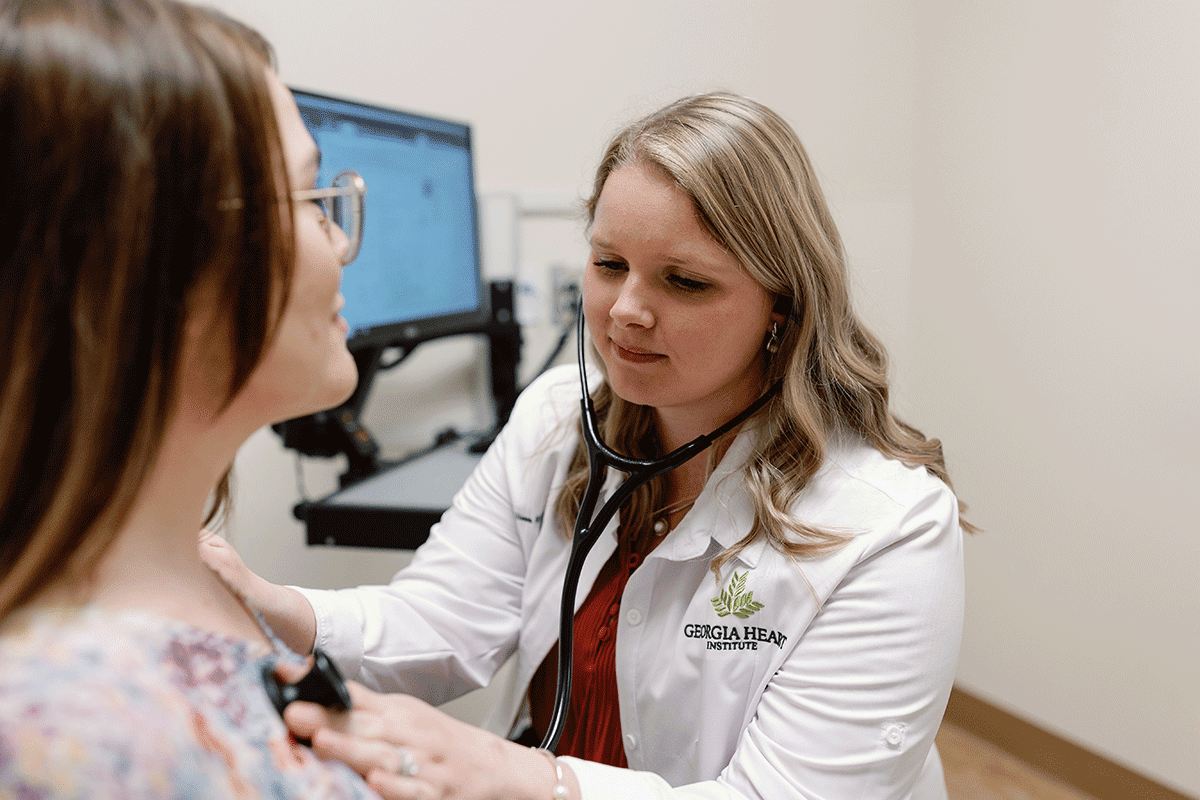When you’re expecting a new addition to the family, your heart health is probably not the first thing on your mind. But it’s an important factor to consider.
That’s because your risk of heart health issues increases during pregnancy and immediately afterward. As you learn how to take care of yourself while you’re expecting and after you deliver, it’s a good idea to keep your heart in mind.
Knowing your risk and how you can protect yourself is important. Take a few minutes to learn the facts about heart health during pregnancy!
What Happens to the Heart During Pregnancy
You may never have thought about it, but your heart is working extra hard when you’re pregnant. Not only is it pumping blood throughout your body, like it does at all times, but it’s also responsible for pumping blood to your baby.
There are some other changes that also affect your heart health during pregnancy. In the first weeks of pregnancy, your blood volume increases. It will keep increasing steadily throughout pregnancy, adding up to about a 40% total increase in blood volume.
Your heart rate also increases gradually during pregnancy. It’s normal for your resting pulse to increase by up to 20 beats per minute, and this number will be highest during your third trimester.
That means there’s some added strain and stress on the heart. This strain is part of the reason you may feel especially tired during pregnancy, and you may also feel short of breath, dizzy, or light-headed at different points.
In most cases, this doesn’t cause problems. But in some instances, this stress can contribute to pregnancy-related heart health issues, such as preeclampsia, gestational diabetes, or even an arrhythmia.
What to Know About Heart Health During Pregnancy
Anyone who is pregnant can experience heart health issues related to pregnancy. But these heart-related issues are more common among those who have underlying issues prior to pregnancy.
That includes women who have congenital heart disease, cardiomyopathy, heart valve disease, or diabetes. Women with those conditions will want to work with their cardiologists and other medical providers to keep a careful eye on their heart health during pregnancy.
Through a $5 million grant, we’re working to change the narrative about heart health issues during pregnancy by creating a Maternal Cardiac Program that identifies women at a high risk of complications. This program will fund maternal cardiac initiatives at Northeast Georgia Health System for those at a higher risk, including minorities.
But all women should pay careful attention to their health and any symptoms they experience during pregnancy and after delivery. Regular checkups with your OB/GYN or midwife are an extra safeguard in place during pregnancy to monitor for concerning cardiac symptoms both during and after delivery.
As part of those checkups, you’ll have some markers of heart health checked regularly. Your blood pressure will be checked at each visit, and you’ll also have your blood sugar checked using glucose tests.
If it’s determined that you have chronic hypertension (high blood pressure diagnosed prior to week 20 of pregnancy), gestational hypertension (pregnancy-related high blood pressure diagnosed after week 20 of pregnancy), preeclampsia (pregnancy-related high blood pressure diagnosed after week 20 with associated end-organ damage), or gestational diabetes, your medical provider will create a treatment plan to manage the condition and protect your health and your baby’s.
Next Steps
Treatment and careful monitoring are important, both throughout the rest of your pregnancy and afterward. While the conditions outlined above go away after pregnancy most of the time, you remain at an increased risk of developing other heart health issues, even years later.
Knowing your risks and working with your care team to keep an eye on your health can help you stay heart-healthy for the long-term.
Women have unique heart health needs and concerns, including during and after pregnancy. The Women’s Heart Center of Georgia Heart Institute is here to help, offering a full scope of services related to women’s heart health.



